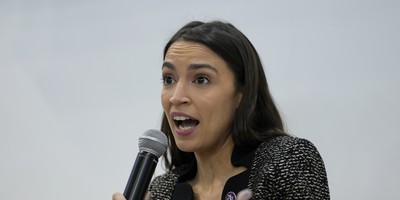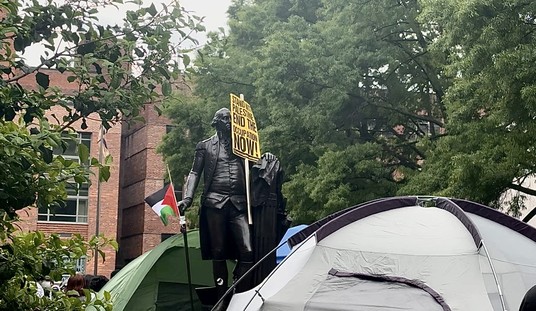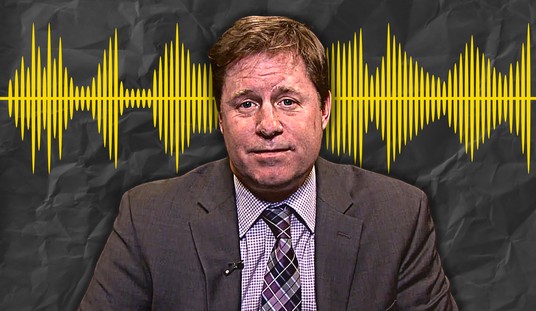Editor's note: This column was co-authored by David Lewis and Don Drake.
The current global security situation is quite disconcerting. Many have focused heavily on the situation in the Middle East. However, we find another region finding its way to being a major concern, the Pacific rim. It is there we find a surging China, economically and militarily. It is imperative that we realize that every nail does not immediately need a hammer. There are other means by which we can engage and confront Chinese expansionism, and that is through economic growth by way of free market expansion.
Vietnam is primarily known to Americans as a lost war from a generation ago, associated with clumsy strategic policy and conscription that divided our nation and ultimately birthed an agenda-driven media that still plagues the American Fourth Estate. However, Vietnam in 2017 is far different than what anyone might have predicted when Saigon fell in 1975, 42 years ago. It has become a case study in evolutionary economics and the power of free markets to create wealth and improve liberties.
As China aggressively pursues comprehensive plans for increasing influence and trade across Eurasia, it behooves the United States to strengthen its own economic strategy, specifically within Asia Pacific, to curb Chinese financial muscle. China is leading the Silk Road Economic Belt – a series of intercontinental maritime and land based infrastructure projects to tie together global supply chains. Chinese economic expansion brings military expansion as evidenced by their actions to seize and militarize disputed regional islands. It is this military expansion that is a concern to many Asian nations, Vietnam being one, and their anxiety over Chinese expansionism is millennia old.
A strong Southeast Asian presence is essential to challenging Chinese hegemony. A key element in the National Power Paradigm is Economic Strength. American-Vietnamese cooperation that strengthens their economy directly increases Vietnamese ability to become a stabilizing force in the region, similar to Japan and South Korea, both staunch American allies. The U.S. and Vietnam each desire stronger, more robust relationships with one another, as both have much to gain. The U.S. can enhance stability through transfer of technological and operational expertise and an abundance of investment capital. Vietnam represents a burgeoning middle-class hungry for American goods, including refined resources such as Liquefied Natural Gas, abundant in the U.S.
Recommended
American and Vietnamese citizens, once opposed on the battlefield, may now find common ground in establishing strong bilateral trade agreements. The U.S. may have withdrawn from the Trans Pacific Partnership (“TPP”), but the need for strong regional relationships only grows as those economies assume an ever-increasing global role. Asian economic cooperatives include ASEAN, APEC, RCEP, TPP and the EU-FTA. Vietnam and Singapore are the only states with membership among all five. Geopolitical conditions remain ripe for American influence to grow through the soft power of hard currency, and Vietnam provides compelling diplomatic and economic value opportunities.
Energy Capital Vietnam (“ECV”) identified this strategic importance and has invested years cultivating strong relationships within Vietnam to become an access point for American business. ECV was formed by American veterans to source, fund and facilitate U.S. operational control of infrastructure projects within Vietnam.
Though still considered intensely local and insular by those most knowledgeable of Vietnamese culture, Vietnam is now 30 years into an ever-evolving renaissance of free markets and economic liberalization. Early failed experiments with Soviet-style central planning led to ‘doi moi’ – an official adoption of entrepreneurism into the state controlled economy. Over the past 25 years, Vietnam has been one of the world’s fastest growing economies averaging nearly 6% annual GDP growth. Once among the poorest, Vietnam has graduated to Middle Income Country (“MIC”) status and is considered a rising star among emerging markets. Vietnamese growth has mirrored that of China but without ambitions for military power projection.
As Vietnam’s newfound MIC status reduces its access to Official Development Assistance, Vietnam must find new ways to fund the infrastructure development needed to maintain impressive growth for a global top 15 population.
Recognizing these challenges, the Government of Vietnam (“GVN”) has pursued international economic integration and adopted financial and legislative reforms to become more attractive to Foreign Direct Investment (“FDI”). Since 2011, the GVN has focused on macroeconomic stability and responsible credit growth by reducing loans to State Owned Enterprises (“SOE”) and instead increased lending to more productive sectors, including skilled manufacturing, consumer finance and real estate. This was complimented by legislative reforms to liberalize the economy, improve transparency and adopt compliance closer to international standards. Vietnam has been rewarded with net capital inflows through increasing FDI which strengthens currency reserves and regulates inflation.
The new administration, led by Prime Minister Nguyen Xuan Phuc, has actively taken steps to ramp up SOE privatization and tamp out corruption – even dismissing a Politburo member just recently, something not done in 20 years.
Vietnam hosts the 2017 APEC summit later this year, and President Trump is expected to attend along with leaders from all 21 member nations. Japan and Australia recently began discussions to keep the TPP in place, pushing ahead as TPP-11, despite U.S. withdrawal. American interests, and economic possibilities, must not be left behind. Without a viable, principled, and persistent economic strategy to accompany security efforts, the U.S. risks ceding a stronger hand to China, which continues increasing its sphere of influence, mainly by coercion and intimidation.
China learned a vital lesson from the collapse of the Soviet Union. The demise of the U.S.S.R. came not militarily but economically. The Chinese have embraced the philosophy of economic growth as a means to military strength. The Vietnamese government is sending a strong message that it’s open for business. The U.S. government should embrace cooperation and encourage American companies to participate in this economic boom. This is a winning strategy that should be pursued and implemented.
Allen West is currently the Executive Director of the National Center for Policy Analysis. West is a twenty-two year veteran of the US Army and a former Member of Congress who served on the House Armed Services and Small Business committees.
David Lewis and Don Drake are energy executives and former US military officers who formed Energy Capital Vietnam as an access platform to enable direct investments into proprietary deal flow. www.ecvoil.com
























Join the conversation as a VIP Member